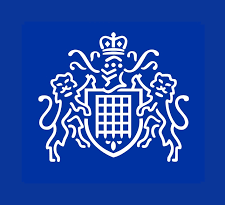Liz Truss – 2020 Statement on the UK-US Trade Deal
Below is the text of the statement made by Liz Truss, the Secretary of State for International Trade, in the House of Commons on 2 March 2020.
Today, we are publishing a suite of documents that mark a crucial step in beginning the formal negotiations for a free-trade agreement with our largest bilateral trading partner, the United States. These documents comprise the Government’s negotiating objectives, our response to the public consultation and an economic scoping assessment. They are available online and in the House of Commons Library.
The UK stands at an historic moment, building its independent trade policy for the first time in almost half a century. This Government will seize the opportunity to be an independent free trading nation with a simple message: that free trade is good for all nations and will deliver benefits for businesses, households and consumers across the UK. We aim to have 80% of UK trade covered by free trade agreements within three years, starting with the EU, the US, Japan, Australia and New Zealand. Seeking these agreements is key to our efforts to level up, deliver opportunity and unleash the potential of every part of the United Kingdom.
The US is one of our largest friends, the world’s largest economy, our closest security and defence partner and one of our oldest allies. We are the biggest investors in each other’s economies. An FTA represents a fantastic opportunity to strengthen and deepen our strong trade, investment and economic relationship, bringing us closer to the world’s economic powerhouse. In 2017, 1.7 million people worked for US companies in the UK, and 1.3 million people worked for UK companies in the US. UK-US total trade was valued at £221 billion last year, representing 19.8 % of all our exports. An ambitious free-trade agreement with the US could deliver a £15.3 billion increase in bilateral trade and a £3.4 billion lift to the economy.
The negotiating objectives we are publishing today are underpinned by one of the largest consultations ever undertaken. We received the views of more than 150,000 respondents, all of which have informed our approach and negotiating objectives. We have scaled up our trade negotiator expertise, with a similar size of team to the US Trade Representative, including a wealth of experience from the private sector, trade law, Commonwealth nations and World Trade Organisation experts ready to deliver for the UK.
My Department’s analysis shows that every single part of the UK could benefit from the US deal, delivering improved access for businesses, more investment, better jobs and higher wages. For Scotland, it could lock in the salmon and whisky trade and support new market access for beef and lamb. Wales stands to gain access for its lamb, and reduced tariffs in red tape for steel and ceramics. Northern Ireland can benefit from improved access to agriculture and furniture tariffs. Every region in England stands to benefit, particularly the midlands and the north-east with their strong manufacturing base in cars and machinery. We also expect significant gains in the tech sector across the country, with a bespoke digital and data agreement.
North, east, south and west, from agriculture to the creative industries, we find that a US trade deal can deliver for all parts of the UK economy. It means more choice for consumers at lower prices, new opportunities for businesses and more high-skilled jobs. It has the potential to slash trade barriers and tariffs of some £451 million, and it could boost British workers’ wages by £1.8 billion.
Small and medium-sized businesses are increasingly international traders in their own right. In 2018, 97% of goods exporters were SMEs, and 30,000 SMEs across the UK already trade with the US. We are going to make it a priority in these trade negotiations to support UK SMEs. We will do that with a dedicated chapter for SMEs. We will ensure that SMEs have easy access to information, and we will make sure that there are SME-friendly provisions, cutting red tape on customs and tariffs in services and goods.
We are also looking to rewrite the game on digital trade, to create a world-leading ecosystem that supports businesses of all sizes across the UK. This could include provisions that facilitate the free flow of data and prevent unjustified data localisation requirements, while maintaining our ability to protect users against online harm. We can ensure that customs duties are not imposed on electronic transmissions, and create great opportunities in areas such as blockchain, driverless cars and quantum technology.
In these trade talks, as in all future trade talks, this Government will drive a hard bargain on behalf of the British people. The NHS, the price it pays for drugs and its services are not for sale. There will be no compromise on high environmental protection, animal welfare and food standards. Throughout these negotiations, this Government will continue to engage collaboratively with Parliament, the devolved Administrations and the public. I can also assure the House that now that the UK is free to negotiate outside the EU, we will be aiming to begin negotiations with the US as quickly as possible. The appetite is clear on both sides. We welcomed the US Government’s negotiating objectives, particularly on developing “state-of-the-art” provisions in financial services and digital trade. We also welcome the enthusiasm, both in the US Congress and in the US Administration, as was made clear during my discussions with the US Trade Representative, Robert Lighthizer, last week. We see this as not just an opportunity to deepen our bilateral trade and investment relationship; it is also about setting an example to the world, about how two leading, open, free-market democracies can trade with each other.
As an independent trading nation, the UK will champion free trade and lower trade barriers at every opportunity. Striking free trade agreements will give our businesses the opportunities, certainty and security they need to prosper. The greatest opportunity to do that is with our closest ally and largest single trading partner, the United States. We have a mandate and we have the team. With these documents we are publishing today, we have the tools. And with hard work, I believe we can get it done. I commend this statement to the House.


